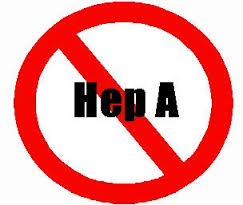The NSW Food Authority is urging people to check their kitchens for any eggs that are marked with the identifying stamp BEC or BEC115 because they may be contaminated with a particular type of Salmonella.
 The stamp BEC or BEC115 will be found on the shell of individual eggs, not on the carton.
The stamp BEC or BEC115 will be found on the shell of individual eggs, not on the carton.
NSW Food Authority CEO Dr Lisa Szabo said thanks to mandatory egg stamping required in NSW, the Food Authority has been able to isolate the particular batch of eggs.
“All other eggs are safe to eat, provided people exercise the usual caution required for a special care food like eggs such as washing your hands and avoiding raw egg products particularly if you are a vulnerable population such as the immune compromised, under two or over 70 years of age or pregnant,” Dr Szabo said.
(That means asking at a restaurant or catered meal if the aioli or mayonnaise served with many dishes, especially great Australian seafood, was made with raw or pasteurized eggs, or was commercially purchased.)
“It is important to know that not all eggs are impacted but if you have any stamped with BEC or BEC115 we recommend as a precaution that you discard them.
“We typically see a rise in Salmonella during the warmer summer months, so this is an opportune time to remind people to practice good hygiene generally when preparing food and to always keep their hands, surfaces and utensils clean and dry before and after handling eggs.”
 NSW Health data indicates that during January 2019, 412 cases of Salmonella infection have been notified, which is similar to the number notified during January in recent years. Children under 5 years of age account for most cases notified this month, although all age groups are affected.
NSW Health data indicates that during January 2019, 412 cases of Salmonella infection have been notified, which is similar to the number notified during January in recent years. Children under 5 years of age account for most cases notified this month, although all age groups are affected.
The NSW Food Authority placed a Prohibition Order on the business that produced the eggs earlier in January preventing them from selling eggs while the possible Salmonella contamination was investigated.
“While it is likely that most affected eggs are no longer in the supply chain, it is possible that people may have purchased them earlier and still have some at home in the fridge or pantry,” Dr Szabo said.
“We’d just like people to check and if they do have any eggs stamped BEC or BEC115 to throw them out to avoid any risk of food poisoning.”
Further information about how to reduce your food safety risk when consuming eggs can be found at www.foodauthority.nsw.gov.au/eggs
An updated table of Australian egg-related outbreaks) is available here.











